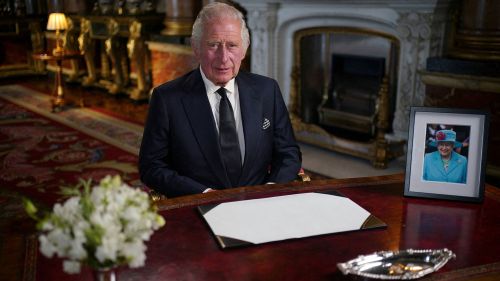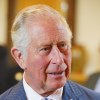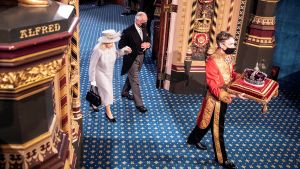Reactions to Global Themes in King Charles' Inaugural Speech

People around the world offer their perspectives on the global themes of King Charles III's first address on the world stage.
As of 2022, more than forty sovereign nations worldwide are governed by some system of monarchy. In an age of rapid social and political change, monarchies have proven remarkably resilient. Across the globe, from the Bahamas and Bahrain to Tuvalu and Thailand, countries on every continent have retained systems of government with a monarch as head of state.
With 70.5 years on the throne, Queen Elizabeth II was the longest reigning contemporary monarch, closing in on the 72-year reign of Louis XIV of France and only just surpassing the 70-year rule of Rama IX of Thailand. With the passing of the second Elizabethan era, King Charles III now ascends to the throne as the symbol of British monarchy and Commonwealth of nations: the voluntary association of 56 countries of mostly former British colonies home to more than two billion citizens.
In his inaugural speech on the world stage today, King Charles III touched on a number of globally themed issues. Ultimately, this signaled intent to engage with the world at large as the new King now embarks on a journey of managing a monarchy in transition, and looks to establish afresh engagement with, and relevance in, the world. To commemorate the occasion, we asked people from a wide array of different backgrounds across the globe to offer their perspectives on this transitional period, and what they made of the King’s first statement of intent–here’s what they had to say.
Vision for a United Commonwealth
In the course of the last 70 years we have seen our society become one of many cultures and many faiths...But, through all changes and challenges, our nation and the wider family of Realms–of whose talents, traditions and achievements I am so inexpressibly proud–have prospered and flourished.
 King Charles III
September, 2022
King Charles III
September, 2022
"He is inheriting an incredibly different reign than his mother did, and he spoke of continuity, devotion, and steadfastness and serving those in 'realms and territories across the world' with loyalty, respect, and love. He overlooks that in many of those realms and territories (including my own) respect and love would need to come with justice, recognition, reparations, the return of assets, and apologies for the harm this institution has caused over lifetimes.
While more of the same may be reassuring to some, to those of us whose nations, identities, and lives have been negatively shaped because of the British monarchy, his speech and the continuity he promises brings an important question to the forefront: to what end is the monarchy beneficial or necessary?"
–Dr. Alaa Murabit, UN SDG Advocate and UN High-level Commissioner
"The main thing that stood out to me was how many times he explicitly mentioned the greater Commonwealth and associated Territories in his speech. Elizabeth II had publicized her hope that her son would continue to serve as Head of State for not just the UK but for the whole Commonwealth, and Charles III is clearly hoping to keep that tradition alive."
—Michael Nelson, Young Professional Network, Chicago Council on Global Affairs
"In terms of the future of the crown, I'll be very curious to see what kind of regnal style King Charles brings to the table. I feel almost certain that it will be of a somewhat different character than the Queen's, who had a strong 'never complain, never explain' ethos, but also undertook some pretty bold diplomatic moves–like visiting Ireland in 2011."
"King Charles made a conscious effort to appeal not just to the British people as their new monarch but also to the "realms" as the royal family still calls the parts of the commonwealth that retain the British monarch as their head of state. It is doubtful he will stem the trickle of remaining countries that wish to replace the monarch with their own head of state, as Barbados did last year, and Australia has repeatedly shown inclinations to do so. But these are symbolic moves and Elizabeth II was used to them - dozens did so during her reign. It does not necessarily undermine the commonwealth. India, after all, remains the body’s largest member. However, the question of whether the British monarch remains automatic head of the Commonwealth may crop up more insistently in the near future."
—Edward Luce, US national editor and columnist, Financial Times
Environmental Cooperation
It will no longer be possible for me to give so much of my time and energies to the charities and issues for which I care so deeply.
 King Charles III
September, 2022
King Charles III
September, 2022
"King Charles is making good on a promise he made some years ago to steer clear of controversy when he became King. This suggests – pretty strongly – that his days as an environmental campaigner are over. That will be a huge disappointment to those who have looked to him to lead the fight on issues such as climate change. But it is clear that he appreciates that such a campaigning role is incompatible with his new constitutional position. It's worth noting that he did suggest that his work would 'go on in the trusted hands of others'–a pretty big hint that he believes his son, Prince William, an ardent environmentalist, will pick up the torch that the King now has to let slip."
–Jonny Dymond, BBC Royal Correspondent
"[King Charles’] particular slate of interests, like sustainability and climate change, offer an obvious place to connect with other Commonwealth nations."
—Krithika Varagur, journalist & author
Continuity, Progress, and Change
And wherever you may live in the United Kingdom, or in the realms and territories across the world, and whatever may be your background or beliefs, I shall endeavour to serve you with loyalty, respect and love, as I have throughout my life.
 King Charles III
September, 2022
King Charles III
September, 2022
"The clear message of King Charles’ first address to his subjects - both British citizens and citizens of Britain’s ‘realms and territories’ as he put it - was to underline continuity: continuity of service, of duty, of titles, even of who would take over running the Duchy of Cornwall, known mainly for mass-produced biscuits and jams. Continuity may be both good and bad, just as the history of monarchy can be good and bad, and acts carried out across the world and the centuries in the name of the British monarchy have certainly been both good and bad, but for nearly all those people that Charles wanted to reach, his mother was the only monarch we ever knew, and in a world where uncertainty seems to be our only certainty, continuity may have been the most important message the new king could deliver."
–Rajesh Mirchandani, former Chief Communications Officer, United Nations Foundation & former BBC journalist
"Queen Elizabeth II reigned through a period of seismic global change; an era defined by shifting power structures, new technologies, and new threats. Looking ahead, King Charles III noted his mother’s ability to embrace change and progress. He will need to be at least as adept to navigate the difficult changes ahead."
"The king spoke a lot about service, but the question is service to whom? Much like colonialism has set out to define life for the underbelly of Britain’s monarchy, so too must we call British service for what it is to those on the other side of history: oppression, violence, and theft. The monarchy is in a dynamic crossroads of its legacy — is the king prepared to bridge a new era of accountability? If not, it may be more than just titles that get left behind."
–Amani, Founder, The Amani Company and Muslim Girl
"In his inaugural address, King Charles III appeared to most want to convey to the more than 2 billion people of varying faiths, ethnicities, and backgrounds who make up the British Commonwealth that even in times of change – especially in times of change – the monarchy and its values never waver. While stability, particularly on a global stage, can inspire confidence in leadership and economies, it also breeds questions of how receptive institutions and those in power will be to change. At a time when we face much uncertainty across the globe, we respect the continuity of devotion and duty from the monarchy and simultaneously hope that, moving forward, its legacy is one that sees value in evolving with the changing needs of the diverse people it serves."
– Amb. Ertharin Cousin, Founder Food Systems for the Future/Former Executive Director, United Nations World Food Programme
 Culture
Culture


